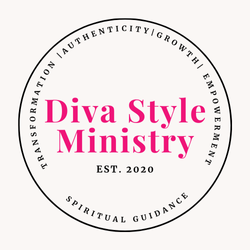Have you ever stumbled, faltered, or made a mistake – large or small?
It’s a rhetorical question, really, because who hasn’t? Mistakes are an inevitable part of our perfectly imperfect human journey, shaping our experiences and growth. If we’re lucky, we get to experience mistakes from a very young age, empowering us to learn how to roll with the punches and recover quickly.
Whether in our personal or professional lives, how we handle mistakes – our own and others – can have a major impact on our lives. Let’s discuss the nature of mistakes, their significance, and how we can transform these admittedly uncomfortable experiences into opportunities for growth and understanding.
The Inevitability of Mistakes
Mistakes are a universal aspect of the human experience.
From minor slip-ups to significant errors, everyone makes mistakes. Consider a common scenario: leading a team or a business where a team member misrepresents your organization. This situation isn’t just about a corporate image and the potential damage that can be done; it reflects human error and responsibility, aspects of our lives that we don’t have 100% control over.
Recognizing that mistakes are inevitable and essential for learning is crucial in developing a compassionate and effective approach to dealing with them. Whether the mistake is yours or someone else’s, dealing with it incorrectly can have lasting repercussions.
The Impact of Mistakes
The impact of mistakes can be far-reaching.
In professional settings, like the scenario of a misrepresentation in your company, the repercussions can affect your business’s reputation and team morale. But it’s the personal impact that’s often more profound.
Our reactions to mistakes – whether we choose to reprimand or extend understanding – define our relationships and personal growth. It’s about discerning when to offer forgiveness and guidance and when to take decisive action, especially in cases of deliberate and malicious errors.
Navigating Through Mistakes
Navigation is the act of planning and directing a route or course of travel, especially over a stretch of water or terrain. The goal is to determine position, course and distance traveled.
In business, the definition adjusts to refer to leading a company or group in a particular direction or in dealing with a difficult situation. It involves skills and knowledge of strategy and choosing to move or progress through an incident in a logical sequence, determining the path or course to take in order to achieve an objective.
You’ll also hear the term used when determining a path or course – understanding or dealing with something complicated. Consider the five options below when you find yourself navigating a challenging situation:
- Empathy and Understanding: When others make mistakes, especially those not born from malice, empathy is key.
Reflecting on our own missteps helps us relate and respond with kindness and understanding rather than harsh judgment. This not only aids in resolving the current issue but fosters a culture of support and growth. - Education and Guidance: In instances where mistakes stem from a lack of knowledge or skill, providing the necessary training and guidance is crucial.
This approach addresses the immediate error and equips individuals with the tools to avoid future mistakes, benefiting both the individual and the organization. - Assessing Intent and Impact: Understanding the intent behind a mistake is vital. If there’s a pattern of repeated errors despite guidance, it may indicate a mismatch between the person’s abilities and their role.
In such cases, it might be necessary to consider reassignment or other measures. However, stronger actions like termination may be warranted where there’s evidence of malicious intent. - Opportunities for Growth: When approached with the right mindset, every mistake is an opportunity for growth.
Encouraging individuals to learn from their errors fosters resilience and a growth mindset, both crucial for personal and professional development. - Forgiveness and Moving Forward: Forgiveness is a powerful tool. It not only helps in healing relationships but also empowers individuals to learn and improve.
Forgiving someone for a mistake can sometimes be the catalyst they need for profound personal growth.
[thrive_lead_lock id=’14708′]
Journal Prompts to Help You Convert Mistakes into Growth Opportunities
Use one or more of these prompts to start or deepen your personal journaling practice. Give yourself time to think about what the prompt brings up for you and explore your feelings on paper. If you need a journal, click HERE to see our available journals.
- Reflect on a recent mistake you made. What did you learn from it, and how can you apply this lesson in the future?
- Think of a time when someone else’s mistake affected you. How did you respond, and what, if anything, would you do differently now?
- Write about a mistake that keeps recurring in your life. What steps can you take to break this cycle?
- Describe a situation where you forgave someone for a mistake. How did this act of forgiveness impact you and the other person?
- Consider a mistake you’re afraid of making. What can you do to prepare or prevent it, and how would you handle it if it happened?
Affirmations to Help Transform Mistakes and Recognize Growth Opportunities
Read the set of related affirmations below aloud. It’s important to your conscious and subconscious mind to hear the affirmations said in your own voice. Choose one or two of the affirmations from the set to start working with. You only need one or two affirmations, used consistently, to make a substantial change in your life.
Choose one affirmation that feels easy to you and choose another that generates resistance or disbelief. The idea is to practice extending your current self-imposed limits and encourage growth.
Say your chosen affirmation loud enough for your mind to hear your voice saying the words and take notice of how you feel as you begin and as you continue your practice. Repeat your chosen affirmation multiple times a day for at least 30 days and reinforce your affirmation by writing it in your journal.
You can change your life by beginning an affirmation practice – using one or two favorite affirmations over the course of 30 to 60 days can permanently change your mindset and your life.
- I embrace my mistakes as opportunities for growth and learning.
- I approach others’ errors with empathy and understanding, recognizing their humanity.
- I am capable of forgiving and moving forward, transforming mistakes into lessons.
- I am resilient and capable of overcoming and learning from my mistakes.
- Each mistake is a stepping stone towards greater wisdom and strength.
[/thrive_lead_lock]





